Artburst Extras
From Miami To Cuba, ‘Havana Habibi’ Part of Conversation at PAMM
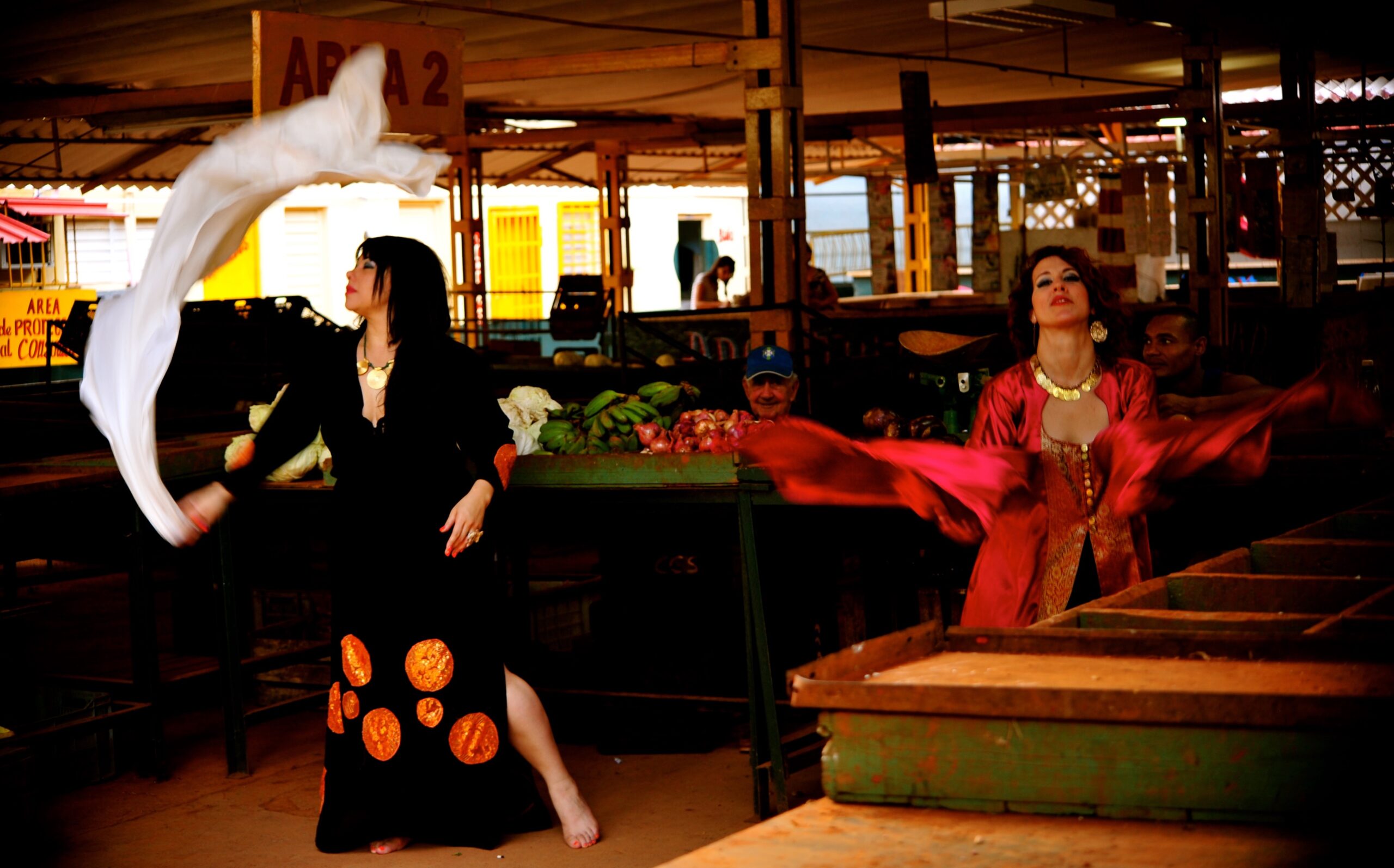
Tiffany Madera’s 2019 film “Havana Habibi” will be shown at PAMM as part of the Caribbean Film Focus Series on Saturday, Oct. 11, followed by a conversation with the filmmaker. (Photo by Beatriz Ricco, courtesy of Tiffany Madera)
Tiffany Madera, born in Miami to Cuban parents, turned to belly dance not just as art but as a calling, one that took her to Havana in 2003. There, she founded Grupo Aisha Al-Hanan, the country’s first belly dance troupe and school, giving women a new language of self-discovery and empowerment.
On Saturday, Oct. 11 at 3 p.m., the Pérez Art Museum Miami (PAMM)’s Caribbean Cultural Institute presents “Havana Habibi,” Madera’s 2019 documentary that follows her search for identity that blossomed into an unexpected feminist movement in Cuba. The screening, taking place during Hispanic Heritage Month as part of the Caribbean Film Focus Series at PAMM, has a connection to Cuba and spirituality, and is in line with PAMM’s latest exhibition, “El Monte,” which centers on Afro-Cuban spirituality and identity.
For Madera, dance was more than performance; it was healing, reconciliation, and resistance. Through movement, she created space for women to reclaim their bodies, voices, and power. Now celebrated as the “matriarch” of belly dance in Cuba, her story in “Havana Habibi” is one of art and activism, exile and return, and the freedom born when creativity becomes courage.
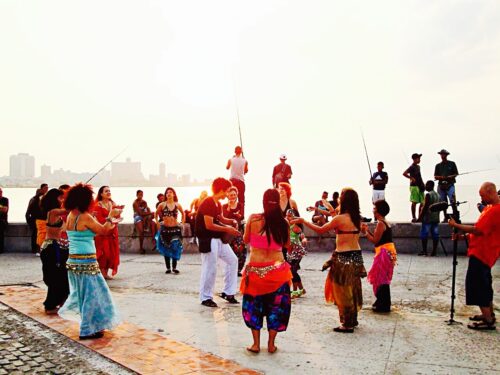
The closing scene of Tiffany Madera’s film “Havana Habibi,” shot on location in El Malecon, Cuba., in 2019. (Photo by Beatriz Ricco, courtesy of Tiffany Madera)
Miami has always been more than a backdrop for her; it’s been a catalyst and central to her work. “Growing up in Miami in the 1980s was an incredible time – a true confluence of cultures. That mix of influences shaped how I see the world, how I create, and how I move through it,” she shared.
Her latest work, “The Baladi Project,” builds on the foundation of “Havana Habibi,” tracing the idea of homeland through movement and memory. “That seed was planted here,” Madera said.
Staying true to her multidisciplinary roots, Madera’s new project blends live performance, community engagement, visual art, and a documentary now in production. “We started shooting in August and will continue over the next 18 months in communities across Miami, Latin America, and North Africa,” she added.
Last year, she launched “The Baladi Talks” series with FIU’s Public Humanities Lab and the Love Affair Bellydance Festival, featuring dancers from Brazil, Puerto Rico, Saudi Arabia, Cuba, Iraq, Lebanon, and the United States. Together, they explored expressions of homeland, diaspora, and identity, core themes that continue to define Madera’s artistic voice.
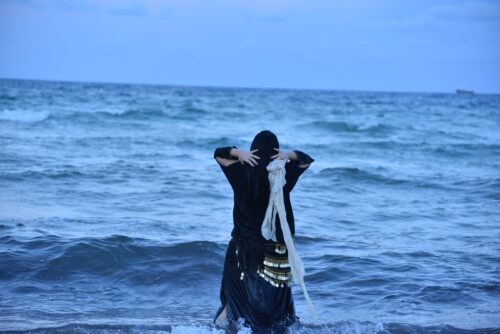
A scene from “The Baladi Project,” Tiffany Madera’s newest documentary being filmed starting in August 2025 and continuing through the next 18 months across Miami, Latin America, and North Africa. (Photo by Omni Kizzy, courtesy of Tiffany Madera)
Although rooted in Miami and Cuba, “Havana Habibi” resonates on a global scale. The women in the film embody that story, many of them now living outside Cuba while carrying their art across borders.
“(It) is a coming-of-age story about diaspora; about what happens to the body in diaspora,” explained Madera. “At first, it might seem like a Miami-Cuba story, but it’s truly universal. It has resonated on many continents because everyone knows what it means to carry parts of themselves across borders.”
While she has taken on many roles over the years (i.e., artist, dancer, scholar, creator, filmmaker) she views them all as inseparable. “Dance is the thread, and that’s where I feel most at home.”
She traces her earliest connection to Arabic dance to her father, who, she said, filled their home with music and storytelling, weaving tales of the family’s migrations from Morocco to Spain and eventually to Pinar del Río, Cuba. During her studies in France, she said she encountered Arab culture and felt an immediate connection. “It was something I recognized in my bloodline and family history.”
Out of this lineage of story, movement, and memory, “Havana Habibi” was born in 2003. It was then that she arrived in Cuba to participate in an artistic exchange, and she founded Cuba’s first Arabic dance troupe Grupo Aisha Al-Hanan. The troupe itself emerged organically. There was dancing long before cameras ever arrived, Madera recalled. At some point, she realized it had become much more than a dance project.
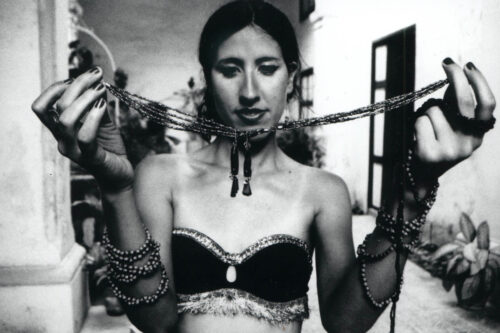
“Gretel,” a still image taken during the filming of “Havana Habibi” in 2019. The documentary will be shown at PAMM as part of the Caribbean Film Focus Series. (Photo by Joshua Bee Alafia, courtesy of Tiffany Madera
“We weren’t just dancing; we were coming of age together. Something universal was unfolding between us, something that could help and heal others,” she said. “There’s a moment in the film when this realization is captured on camera. It’s raw and tender – still hard for me to watch – but it’s real. That’s where the magic lies.”
When she began offering Arabic dance workshops in Cuba, Madera discovered the culture was already deeply embedded. Arabic influences were visible across Cuban food, architecture, music, and dance. “That’s why the workshops were received so warmly: the context was already there.” She said that what surprised her most was how committed Cubans were to preserving Arabic culture.
More than two decades later, the legacy of her work continues. The original eight students have gone on to create schools, projects, and enterprises of their own. Generations of dancers can now be traced to that founding group.
For Madera, the beauty lies not only in preserving tradition but also in innovation. “They’ve woven styles from around the world while remaining true to their own voices, their own culture, and their own creativity.”
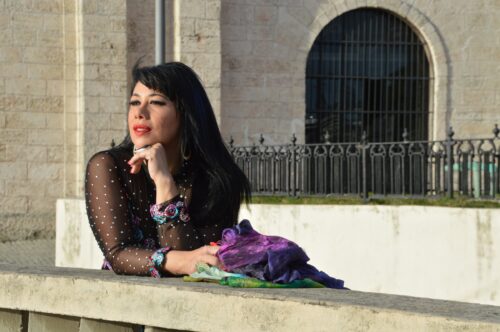
Tiffany Madera in Havana’s port while filming “Havana Habibi” in 2019. (Photo by Yoel Cuba, courtesy of Tiffany Madera)
Making “Havana Habibi” required Madera to turn the lens on herself, which brought its own challenges. “There are parts of the film that are difficult for me to watch even now,” she admitted. But she also found that those same vulnerable moments opened pathways to healing; for herself and for audiences.
She shared that viewers often approach her after screenings to share how the film helped them reflect on their own lives.
For her, the film is both a love letter to Havana and a meditation on migration, belonging, and the resilience of women everywhere. And when asked what she hopes audiences will take away from the film, her answer is distilled to a single word: “Tenderness.”
WHAT: “Havana Habibi,” followed by a conversation with Tiffany Madera
WHERE: Pérez Art Museum Miami (PAMM), 1103 Biscayne Blvd., Miami
WHEN: 3 p.m., Saturday, Oct. 11
COST: Free with RSVP, www.pamm.org/en/events/event/caribbean-film-focus-havana-habibi/
INFORMATION: (305) 375-3000 or www.pamm.org
ArtburstMiami.com is a nonprofit media source for the arts featuring fresh and original stories by writers dedicated to theater, dance, visual arts, film, music, and more. Don’t miss a story at www.artburstmiami.com.
